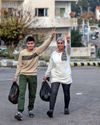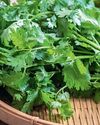
Most European cities were not designed for cars. Their streets were once a place for a host of varied human activities: working, trading, socialising, playing. Getting from A to B, other than on foot, was a small part of the mix.
The arrival of the car in large numbers on Europe's roads ended that in the 1950s. Streets were now for traffic, which must reach its destination as fast as possible ... and have somewhere to park once it gets there. Cities changed, radically.
A fightback is now well under way, driven by a pressing need to cut air pollution and combat the climate crisis, and a wish to reclaim cities as pleasant places to live. Most major European cities now have schemes in place to reduce road traffic.
Strategies vary, from congestion charges, parking restrictions and limited traffic zones to increased investment in public transport and cycle lanes. Evidence suggests that a combination of carrot and stick-and - works best.
consultation Cars emit vast amounts of pollution. Road transport accounts for a fifth of EU emissions, and cars are responsible for 61% of that. With an average occupancy rate across the EU of just 1.6 people a car, they are also a hugely inefficient use of public space.
But traffic reduction policies often spark fierce resistance. For many, especially older people, cars are not just vehicles, but symbols of personal freedom and success. In several cities, attempts to restrict car use have opened a new front in the culture wars.
So for many different reasons, getting cars out of Europe's cities is not easy. Here Guardian writers look at three: Paris, where car use has almost halved; Barcelona, where a new mayor has his doubts; and Brussels, where bureaucracy is not helping.
Barcelona
Diese Geschichte stammt aus der January 05, 2024-Ausgabe von The Guardian Weekly.
Starten Sie Ihre 7-tägige kostenlose Testversion von Magzter GOLD, um auf Tausende kuratierte Premium-Storys sowie über 8.000 Zeitschriften und Zeitungen zuzugreifen.
Bereits Abonnent ? Anmelden
Diese Geschichte stammt aus der January 05, 2024-Ausgabe von The Guardian Weekly.
Starten Sie Ihre 7-tägige kostenlose Testversion von Magzter GOLD, um auf Tausende kuratierte Premium-Storys sowie über 8.000 Zeitschriften und Zeitungen zuzugreifen.
Bereits Abonnent? Anmelden

Out of touch How president sealed his own fate in martial law gambit
For Yoon Suk Yeol, this month's short-lived martial law declaration wasn't just a catastrophic miscalculation - it was the culmination of a presidency that had been troubled from the start.

Son of the soil Who is François Bayrou, the farmer turned prime minister?
François Bayrou, the new French prime minister, calls himself a country man. A tractor-driving \"son of the soil\" and breeder of thoroughbreds, he has run for president three times, saying his rural roots and centrist politics led him to try to find common ground between left and right.

Power plant workers keeping the lights on
The Guardian Weekly visits a Soviet-era coal-fired thermal installation to learn how it has held up to Russian attacks

Prince charmed Alleged spy scandal may have exposed China threat
Prince Andrew should be commended for doing Britain a great service, according to longstanding China watcher Charles Parton. The now marginalised royal has, the analyst observed, \"almost single handedly\" succeeded \"in highlighting the threat to free and open countries\" posed by the contemporary Chinese state.

In Moscow, a new life of secluded irrelevance awaits Assad
He was whisked away without a last message to his people, the aircraft's transponder deliberately switched off to avoid detection as it departed from an airbase in Syria.

'We fear new oppression' Alawites worry over rebel rule
To prepare khubeiza, the leaves of the kale-like plant must be roughly chopped and sauteed with onions, garlic and a dash of salt. According to folklore, the recipe originated among the Alawite communities who lived in Syria's mountainous coastline where the fibrous, wild-growing plant can be found in abundance. So poor were the Alawites in Ottoman times, the story goes, that the only food they could find to eat was khubeiza, which sprouts like a stubborn weed every spring.

'Gisèle is waiting for explanations'
The Pelicot rape trial has horrified the world. But as it comes to an end, the questions it has raised about French society and rape culture have still not been answered.

FROM DOCTOR TO BRUTAL DICTATOR THE RISE AND FALL OF ASSAD
0N THE FACE OF IT AT LEAST, the Bashar al-Assad of 2002 presented a starkly different figure from the brutal autocrat he would become, presiding over a fragile state founded on torture, imprisonment and industrial murder.

What fresh alternatives can be used to placate coriander haters?
Everyone knows a hater of coriander - also known as cilantro - who won't go near the stuff. Itamar Srulovich, however, is not one: \"I adore fresh coriander, and always have,\" says the chef/co-owner of the Honey & Co group in London.

Farage is lying in wait.Britain cannot afford to see Starmer fail Jonathan Freedland
This government must not fail. Let's get that clear from the start. If Keir Starmer does not succeed, too many British voters will conclude that both the traditional parties, Labour and Conservative, have proved useless and that it is time to try something else with that something else being nationalist populism.